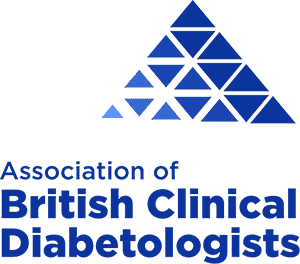Judges reviewed entries submitted in other categories and identify outstanding submissions relating to the following specialist groups:
In-patient / Emergency

The partnership working between this network and AstraZeneca is leading to improved patient care following a hypoglycaemic event (hypo). A lack of communication between primary care, secondary care and the ambulance service had led to missed opportunities in the past.
Several teams within the network worked together to develop and pilot a new treatment and information-sharing protocol to manage hypos as well as the delivery of additional training to ambulance staff. Specialist teams now offer comprehensive hypo assessment, post-event education and support and follow-up recommendations, which have led to improved communication, better patient outcomes and an enhanced patient experience.
Children and young people
Insulin Pump Workbook — Leeds Teaching Hospital Trust and University of York
The Leeds’ Children’s Diabetes Team has, with support from parents and children, and in conjunction with the establishment of the University’s Insulin Pump module, developed an Insulin Pump Workbook. The workbook is suitable for use by staff, parents and older children/teenagers, enables units across the region to fulfi l the NICE guidelines for the introduction of insulin pumps in children, starting at a high level of expertise and minimising the early learning curve found with the introduction of new technologies. It has required minimal investment combined with close understanding and good working relationships between PCTs/Commissioners and the Y&H Children’s Diabetes Network.
Foot care
ThinkGlucose — Cambridge University Hospitals
The CUH ThinkGlucose team wants to promote excellent in-patient care of diabetes across the Trust and feels passionately that this work is shared with others. This has required tenacious dedication, energy and innovative thinking by the team. Several hurdles have been overcome by collaboration with all stakeholders across the Trust. The team has proactively infi ltrated current Trust-wide teaching packages and designed new training material and assessment tools of its own which has attracted attention nationwide. It will continue to pursue the best quality of in-patient diabetes care possible.
Health inequalities
3 Dimensions of Care for Diabetes (3DFD) — King’s College Hospital NHS Foundation Trust
Many people with persistent, poorly controlled diabetes also have additional psychological and social problems that impinge on their ability to manage their diabetes care effectively. 3DFD is a service that fully integrates medical, psychological and social care for them. The overall aim is to improve diabetes control, quality of life and quality in care with associated cost effi ciencies. A number of innovations were introduced and a model specifi cally designed to target those hard-to-reach patients with diabetes. This model has been adopted for its sustainability potential by the Guy’s and St Thomas’ Diabetes Modernisation Initiative.














